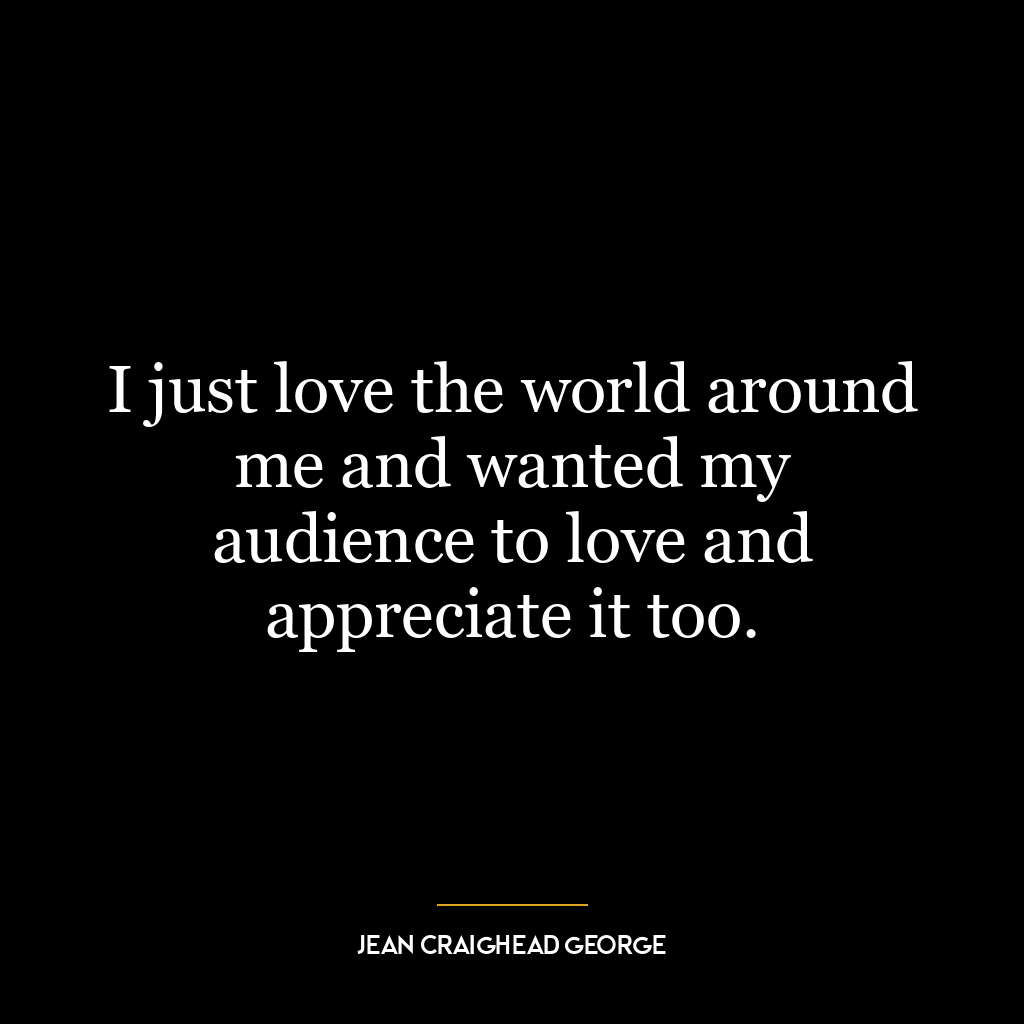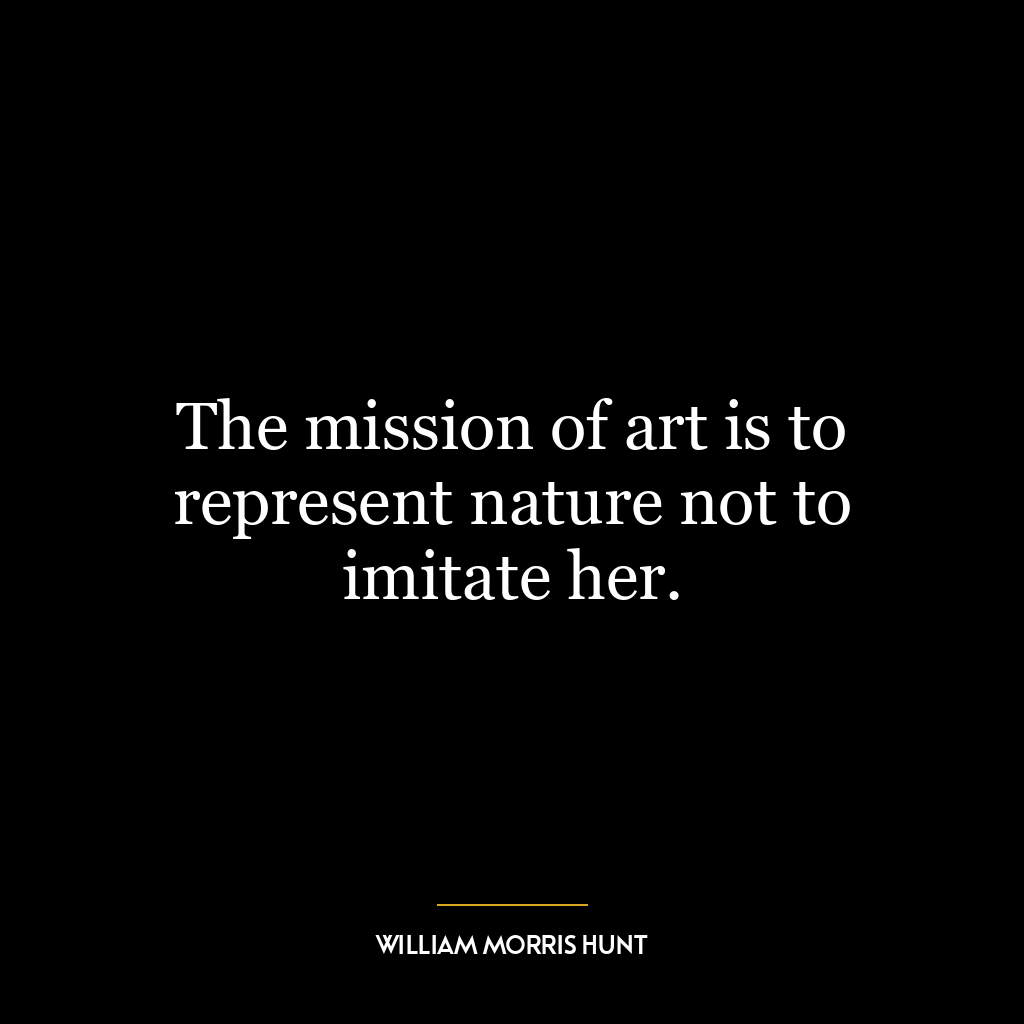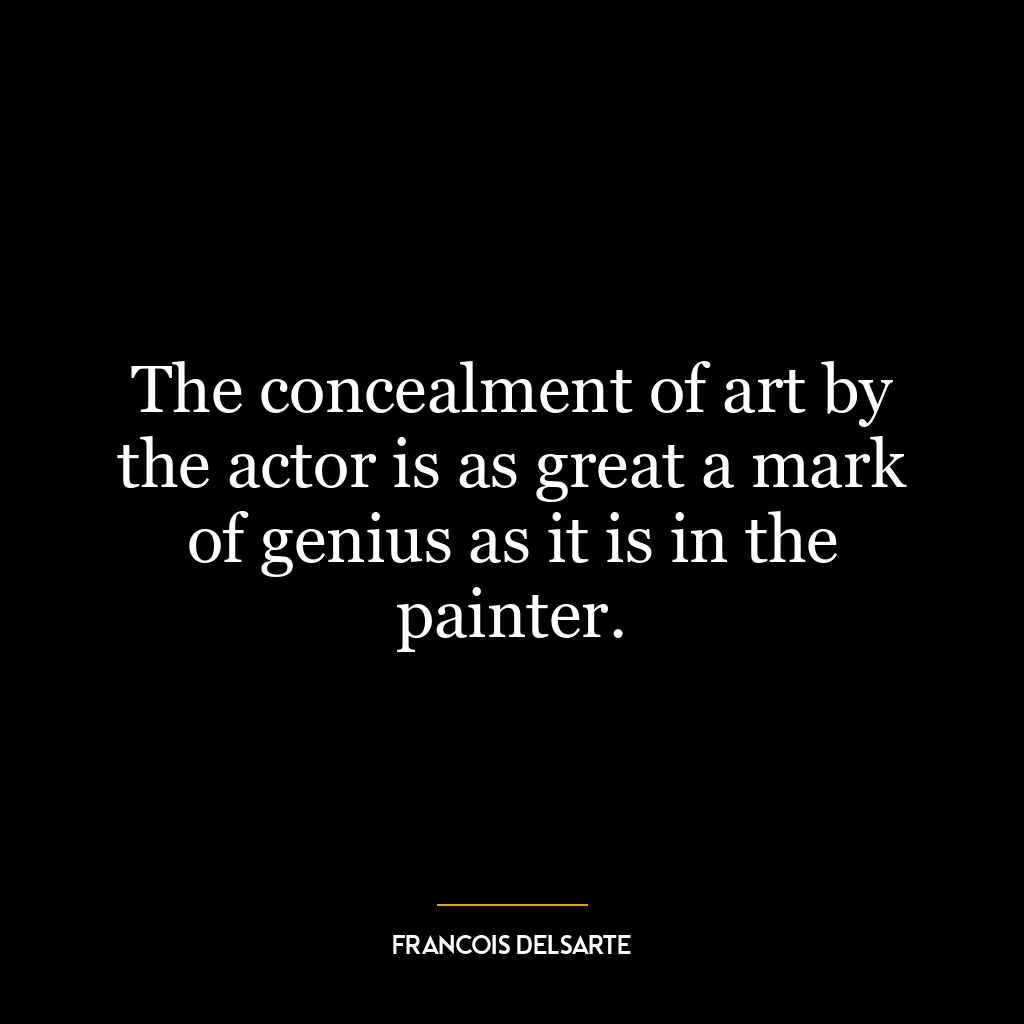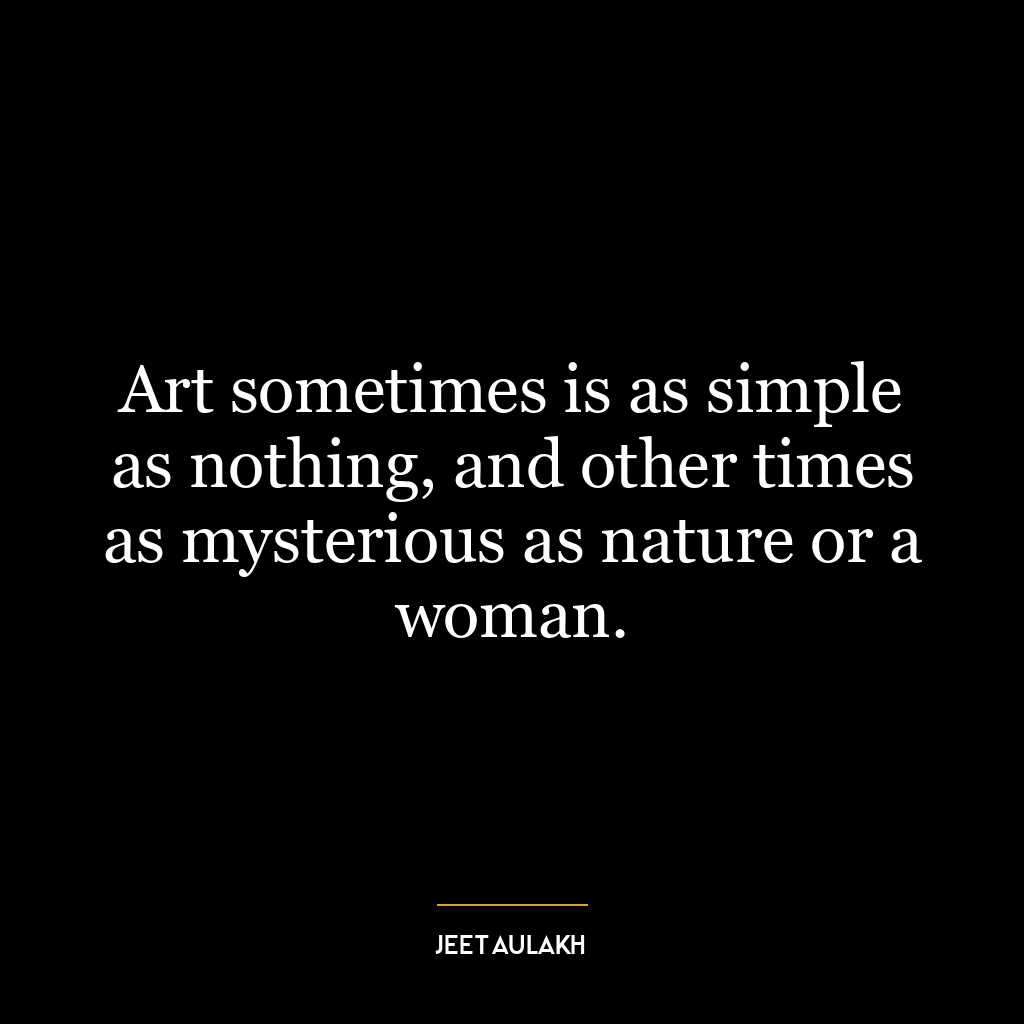Genius learns from nature, its own nature. Talent learns from art.
This quote implies that genius is intrinsic, natural, and self-taught, while talent is learned, cultivated, and often inspired by external influences such as art. A genius, according to this perspective, taps into their own innate abilities and instincts to create or understand something new. They learn from their own nature, their own instincts, and their own inherent understanding of the world. They are original thinkers and creators who often break the mold and defy conventional wisdom.
On the other hand, talent is seen as something that is learned or acquired, often through the study of existing works of art or other external sources. Talented individuals often excel in their chosen field by studying and emulating the work of others, honing their skills through practice and refinement, and applying established techniques and methods in new and innovative ways.
In today’s world, this quote can be interpreted as a call to balance both genius and talent. In the realm of personal development, it suggests that while it’s important to learn from others and refine our skills (talent), we should also listen to our own instincts and nurture our unique perspectives (genius). For instance, in the business world, a successful entrepreneur might have the talent to understand market trends and the genius to introduce a groundbreaking product or service. In the art world, a painter might have the talent to master various techniques and the genius to create a unique style.
Finally, this quote also emphasizes the importance of authenticity. The genius learns from their own nature, suggesting that true innovation and creativity come from being true to oneself and one’s own unique perspective. This is a timeless idea that remains just as relevant today, in an era where we are often encouraged to conform to certain societal norms or expectations.










